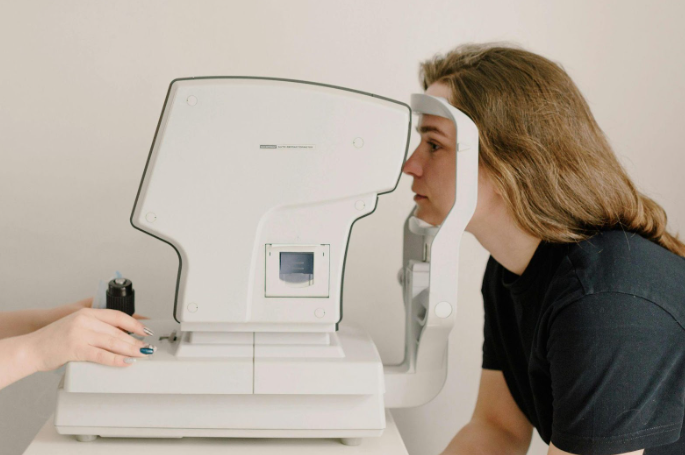3 Serious Eye Diseases You Probably Won’t Detect On Your Own

Many eye diseases have no early warning signs or symptoms, but a comprehensive eye exam can detect eye diseases in their early stages, before vision loss occurs. Early detection and treatment of any eye disease is the key to preventing vision loss, and ophthalmologists are trained to evaluate your eyes to degrees that go well beyond whether or not you need glasses.
Cancer
Many diseases, including some cancers, can be diagnosed early through a comprehensive eye exam. The eye is an important part of our nervous system and the fine blood vessels at the back of the eye can indicate abnormalities before they become apparent in other parts of the body.
As we reported in 10 Incredible Patient Success Stories That Happened in 2017 , a routine eye exam provided the first clue that a seemingly healthy teenage boy actually had leukemia. During a routine dilated eye exam, his ophthalmologist detected two small, pinpoint hemorrhages on the boys retina. His finding led to more medical tests, which revealed the boy had leukemia. He had gotten a clean bill of health during a physical with his pediatrician just a few months earlier.
Cancerous growths can occur in any part of the body, including the eye. An ophthalmologist can also check for ocular melanoma, a rare form of eye cancer. Most ocular melanomas typically don’t cause early signs or symptoms, and they usually form in the part of the eye you can’t see when looking in a mirror. There is treatment available for eye melanomas, and treated small eye melanomas may not interfere with your vision. However, treatment for larger eye melanomas typically does cause some vision loss.
Diabetic Eye Disease
The most common cause of blindness in the United States is diabetic eye disease , which has no symptoms in its early stages. But it’s important to diagnose and treat diabetic eye disease before symptoms of vision loss occur, and until then the only way for a person with diabetes to know if they have diabetic eye disease is to get a routine eye exam at least once a year.
Glaucoma
Glaucoma is the second leading cause of blindness in the U.S., affecting more than 2.7 million people ages 40 and older. Initially, glaucoma shows no or very few symptoms. In fact, according to the American Academy of Ophthalmology nearly half of those who have glaucoma don’t even know that they do. This is one of the many important reasons to schedule an ophthalmologist appointment every year, especially if you have a family history of glaucoma, are over 40, or are diabetic.
Many eye diseases are asymptomatic until they reach the later stages and become a serious threat to your vision. A comprehensive annual eye exam will allow your eye doctor to evaluate the health of your eyes and make recommendations to keep your vision as sharp as possible.
At Baptist Eye Surgeons , we treat a wide range of eye diseases and are one of the most trusted eye specialists in Tennessee. Baptist Eye Surgeons is an ophthalmological practice dedicated to providing quality eye care to patients whose needs range from routine comprehensive eye examinations to complex eye surgeries. To request an appointment or get directions to our Knoxville and Morristown locations, visit our website . Call us at 865-579-3920 for more information, or visit us online to schedule an appointment .





